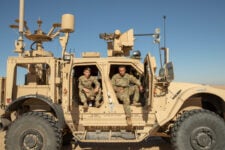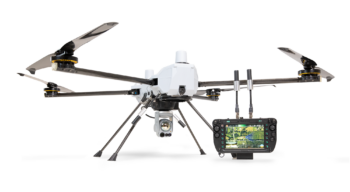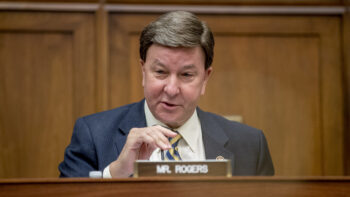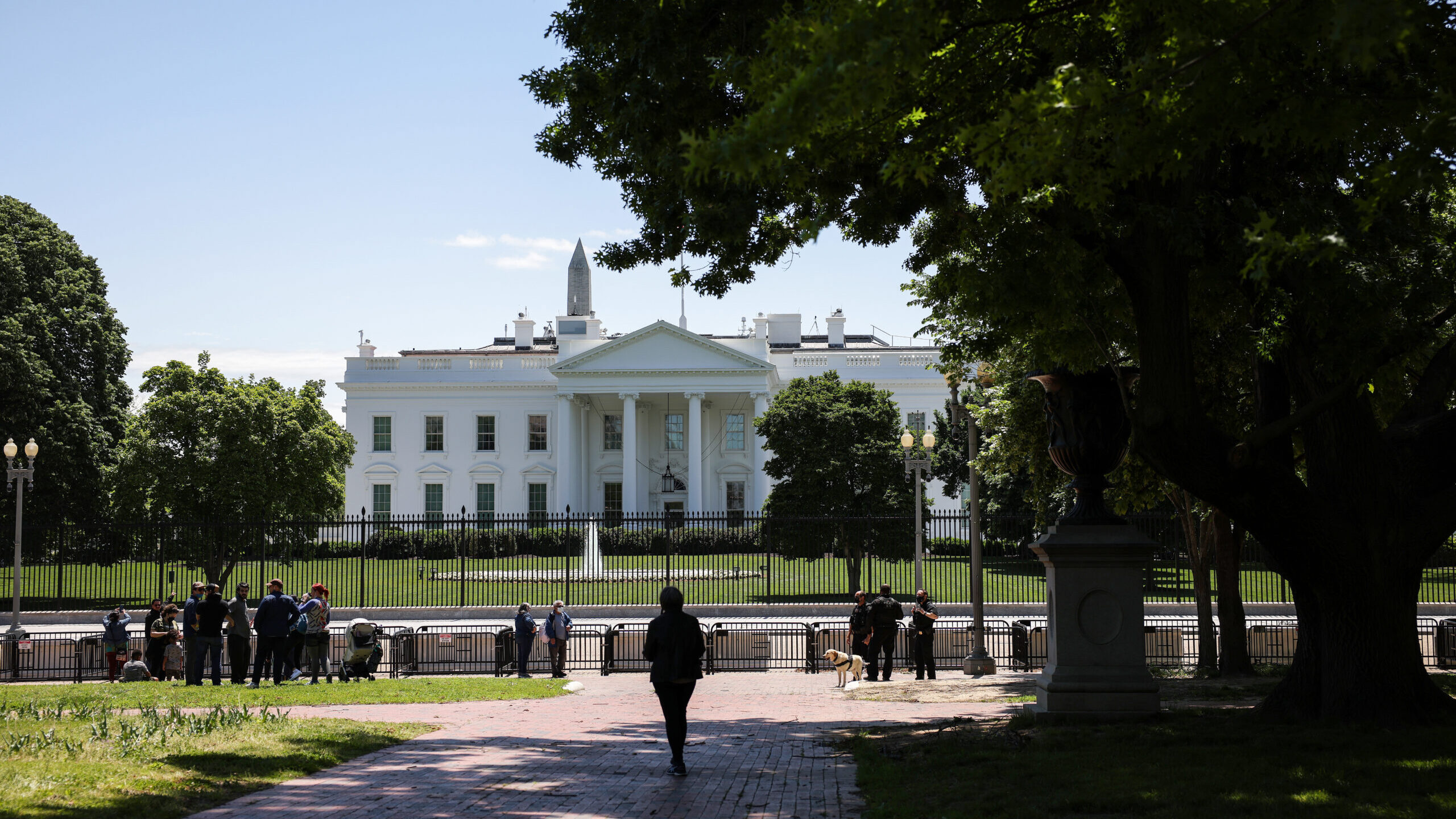
Lafayette Square, near the White House, on May 10, 2021. (Photo by Anna Moneymaker/Getty Images)
Updated 6/3/2023 at 1:35 pm ET with comment from Chairman of the Joint Chiefs of Staff Army Gen Mark Milley.
WASHINGTON — The Biden administration is actively considering whether to provide Ukraine with controversial cluster munitions but has not reached a final decision, a senior US official told Breaking Defense.
The dual-purpose improved conventional munitions (DPICMs) are surface-to-surface warheads designed to explode and then disperse smaller munitions that themselves are designed to explode over a wider area. However, when those bomblets don’t explode, civilians are at increased risk of death or injury if they accidentally stumble upon them and trigger an explosion. That risk, along with pushback from partners and allies, in part, has so far prompted the administration to shy away from sending the weapons to Ukraine.
However, a senior official told Breaking Defense today that the decision is now being weighed more closely and a change could be afoot. Although the official did not detail why the administration may change course, they noted that since Ukraine and Russia have both been using similar cluster munitions throughout the conflict, there is already a need to “clean up” the unexploded ordinances scattered about. Politico first reported the renewed consideration late Thursday.
When asked about the pending DPICM decision today, Chairman of the Joint Chiefs of Staff Army Gen Mark Milley said it is a decision that President Joe Biden will need to make.
“As far as decision making goes, we, as part of the process, we consider all kinds of options,” the four-star general said told an audience at a National Press Club event. “One of my jobs … is to tee up an option for the president, any president, and lay out what that option is, and what the cost risks and benefits are.”
“We have been thinking about DPICM for a long time, Ukrainians have asked for it,” he later added. “Other European countries have provided some of that, the Russians are using it. So yes, of course, there’s decision making process ongoing and it’s a continuous ongoing process.”
The White House did not immediately respond to questions about the pending decision. And, it is not immediately clear to what extent Washington is consulting with foreign allies and partners about this decision, especially given that countries including France, Germany and the United Kingdom are signatories on the 2008 Convention on Cluster Munitions. (The US, Russia and Ukraine have not signed on to the treaty.)
A US State Department spokesperson did not directly address the status of ongoing discussion with allies and partners about the potential delivery of cluster munitions to Ukraine, but did note that Washington is continuing to reassess just what capabilities the Eastern European nation needs to fend off Russian forces.
“As Russia’s war against Ukraine has evolved, so too has US security assistance,” the spokesman wrote. “We will continue to closely consult with Ukraine and work around the clock to continue deliveries in support of Ukraine’s courageous defenders. We will also continue to work with allies and partners to identify and provide Ukraine with additional capabilities.”
Reports of this decision emerged on Thursday, just hours after the Wall Street Journal reported that the White House is considering a different landmark decision: sending Kyiv longer-range Army Tactical Missile System (ATACMS) to fire from its M142 High Mobility Artillery Rocket System (HIMARS) launchers.
For his part, Pentagon Press Secretary Air Force Brig. Gen. Pat Ryder told reporters he didn’t have anything new to announce on ATACMS and was “not aware of any imminent decisions” related to that weapon.
“We’re going to constantly look at the variety of capabilities, again, based on what Ukraine’s most urgent needs are,” the one-star general told reporters on Thursday.
Poland’s new East Shield plan mixes modern ISR with old-school physical barriers
Poland will spend $2.55 billion over the next four years to strengthen its borders with Belarus and Kaliningrad, under a new government plan.






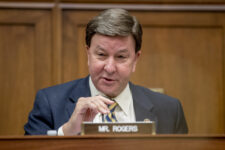
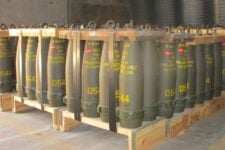
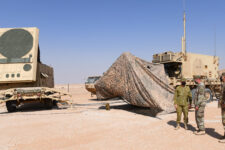
![IFPC-HPM [2]](https://sites.breakingmedia.com/uploads/sites/3/2023/11/IFPC-HPM-2-e1698843558272-225x150.jpeg)



